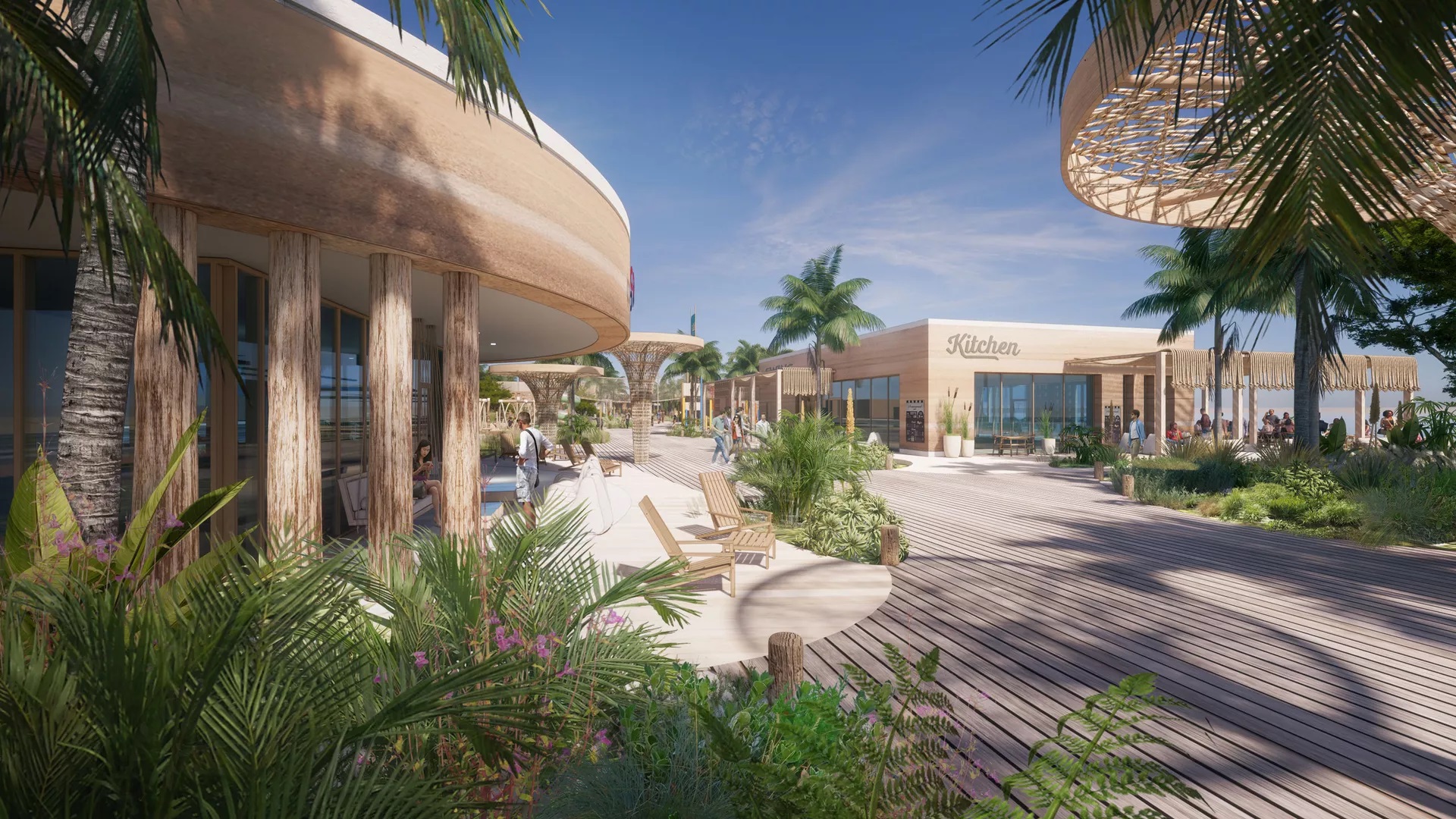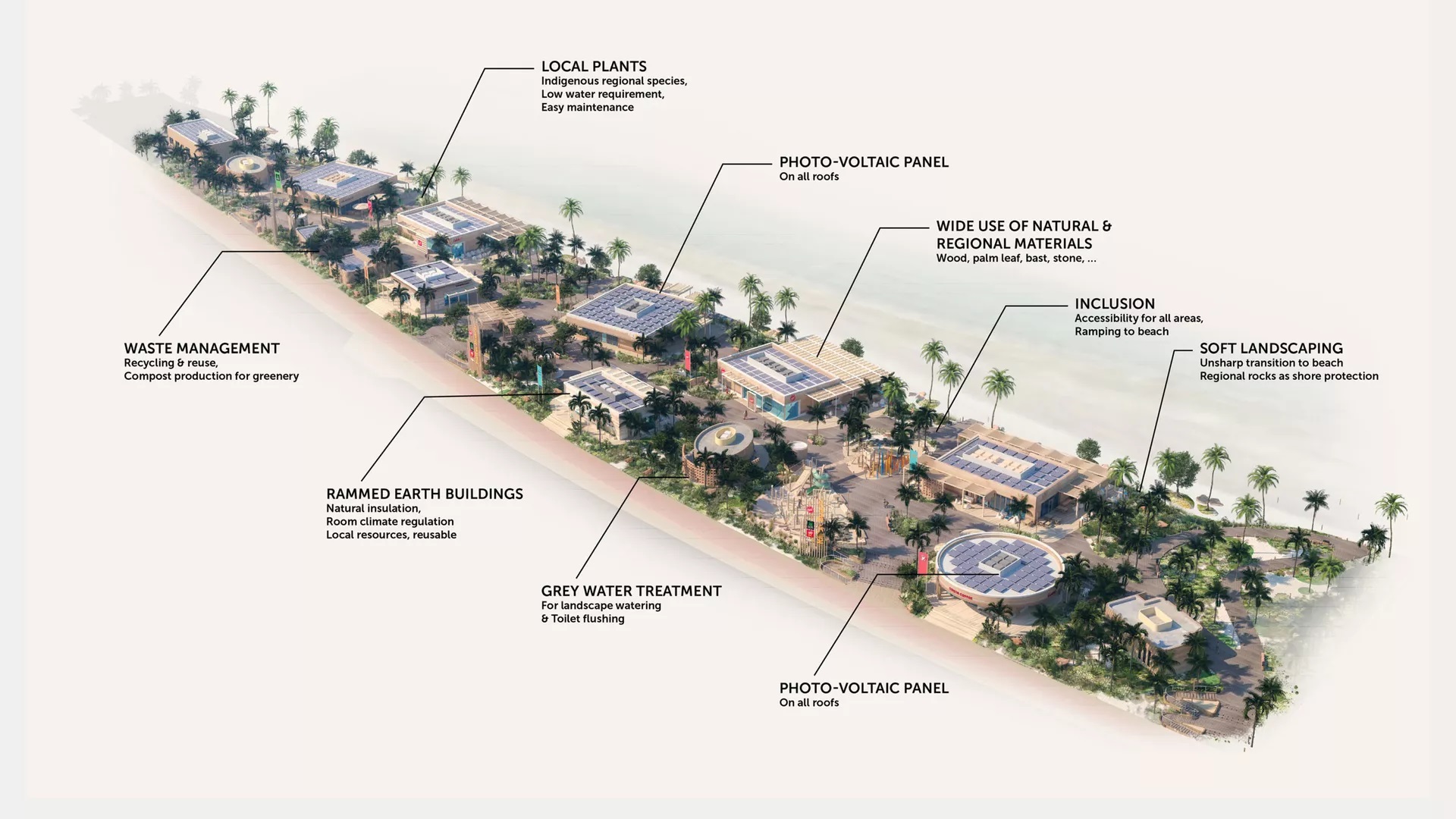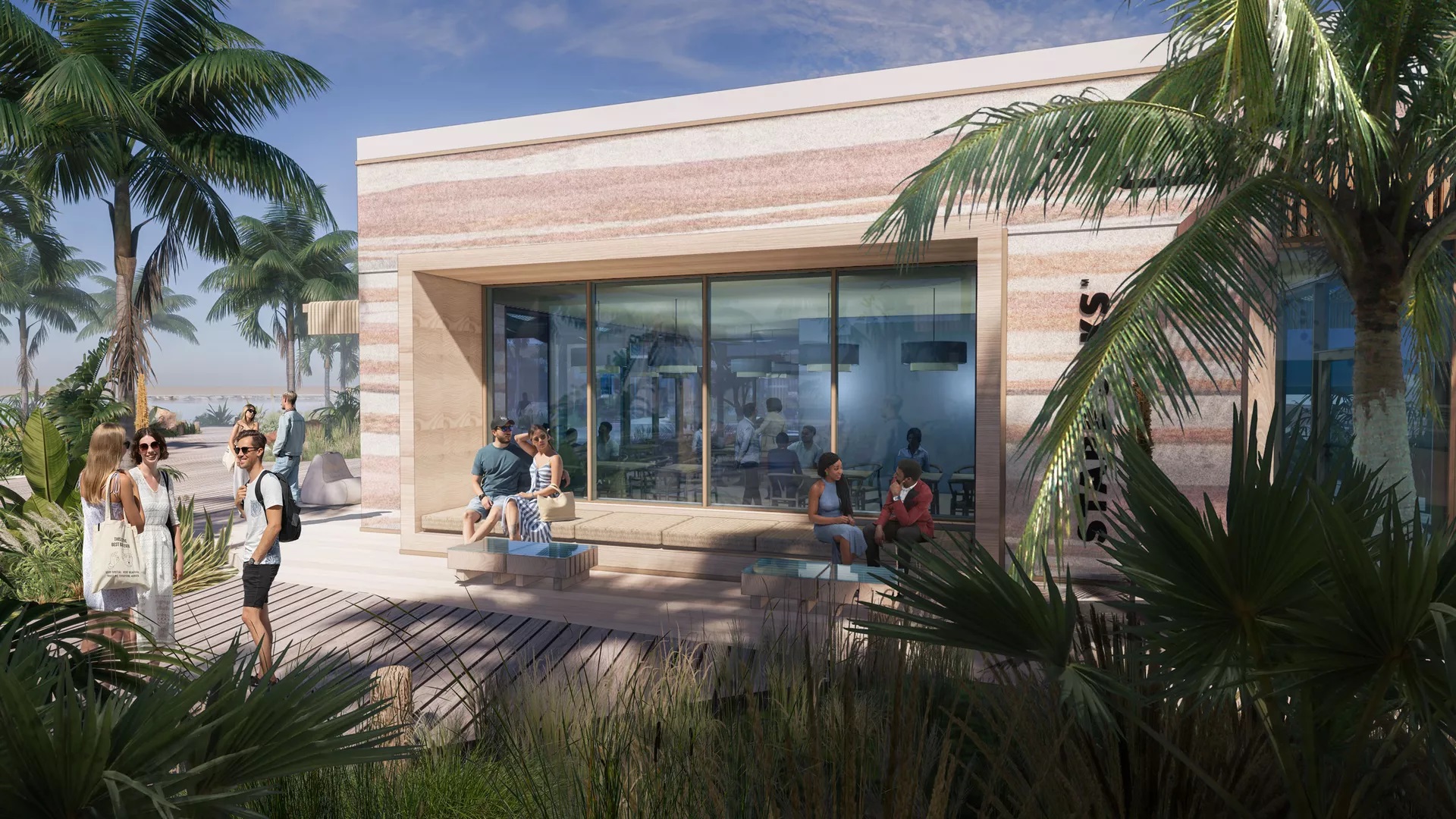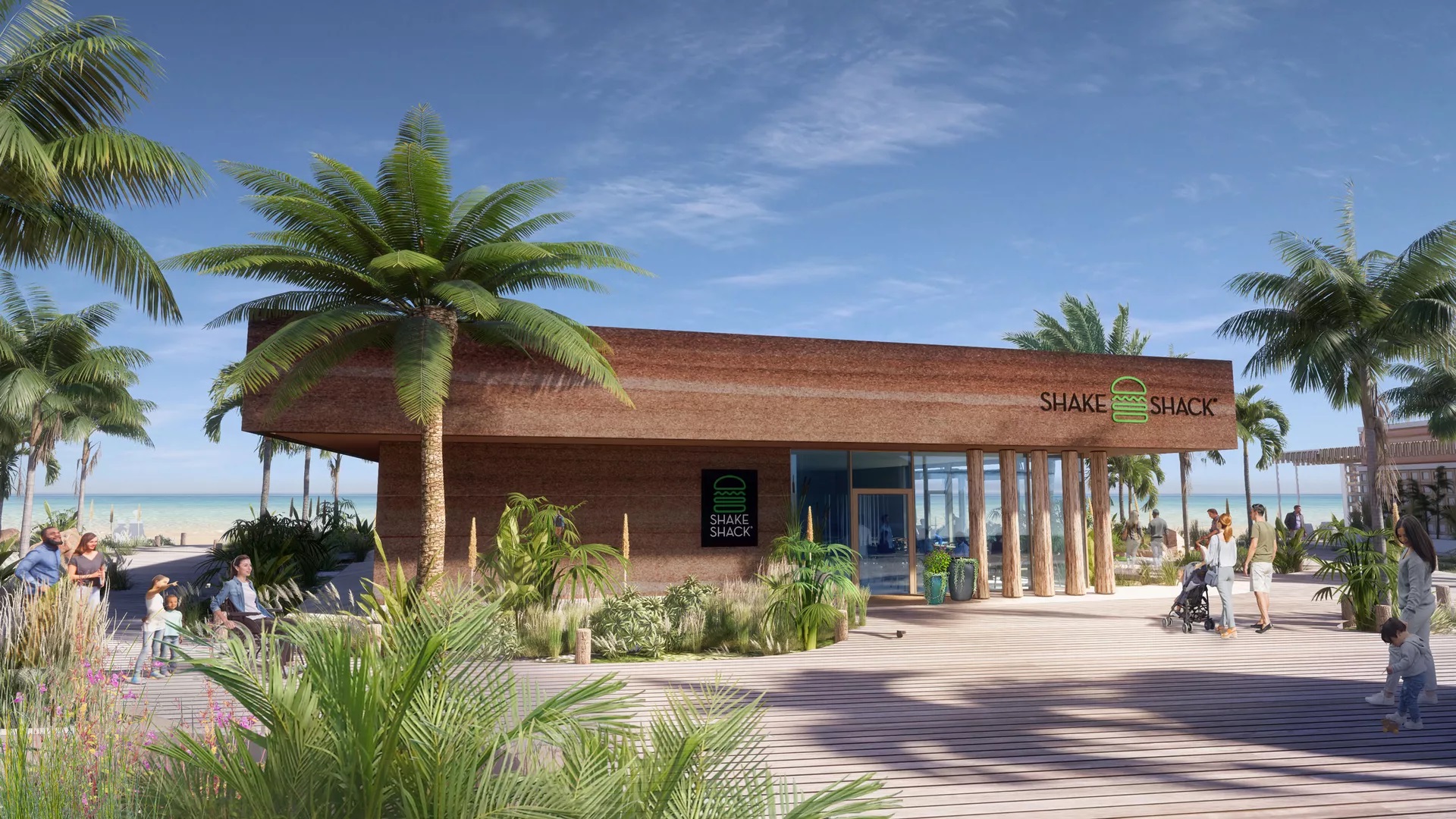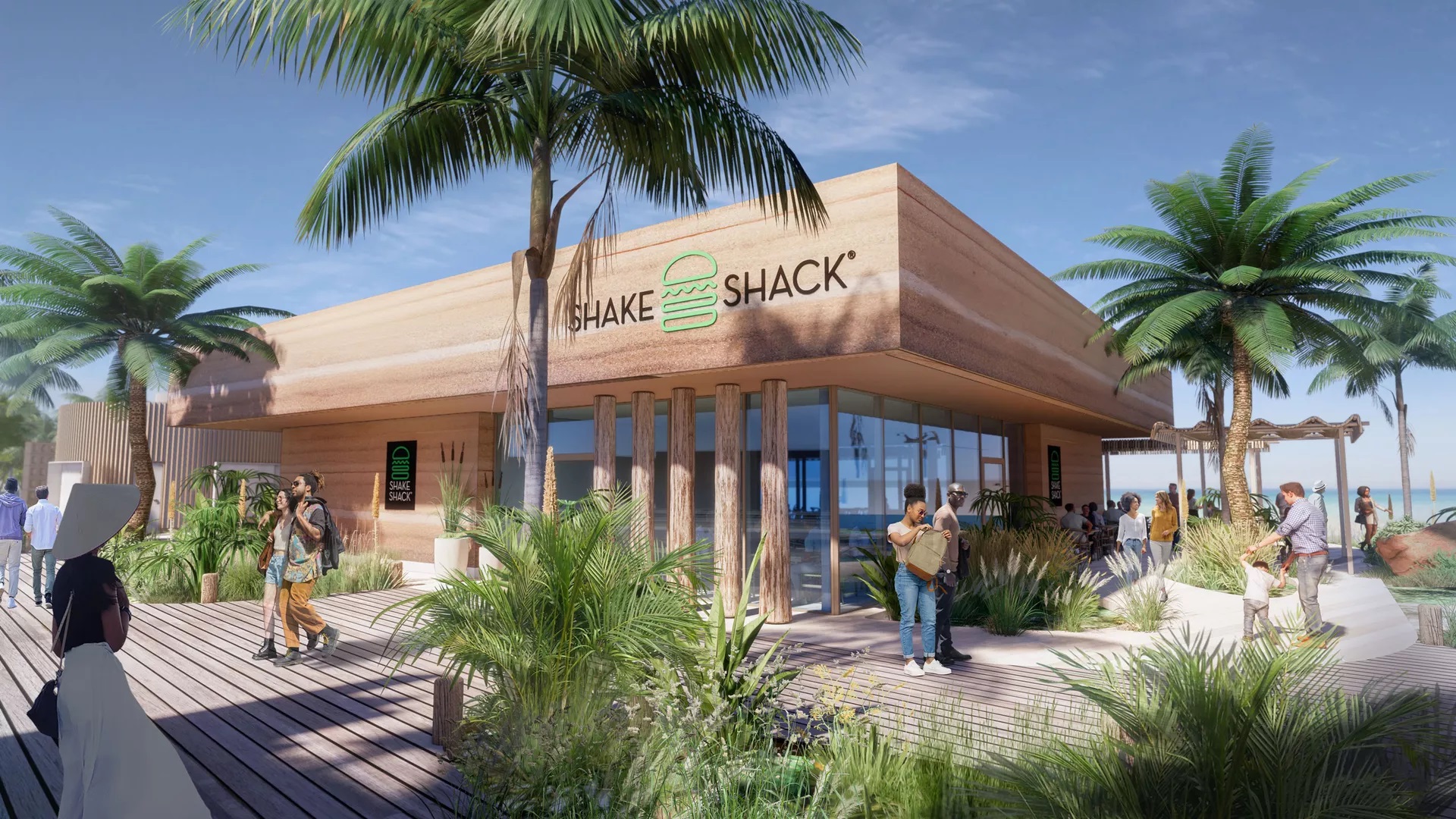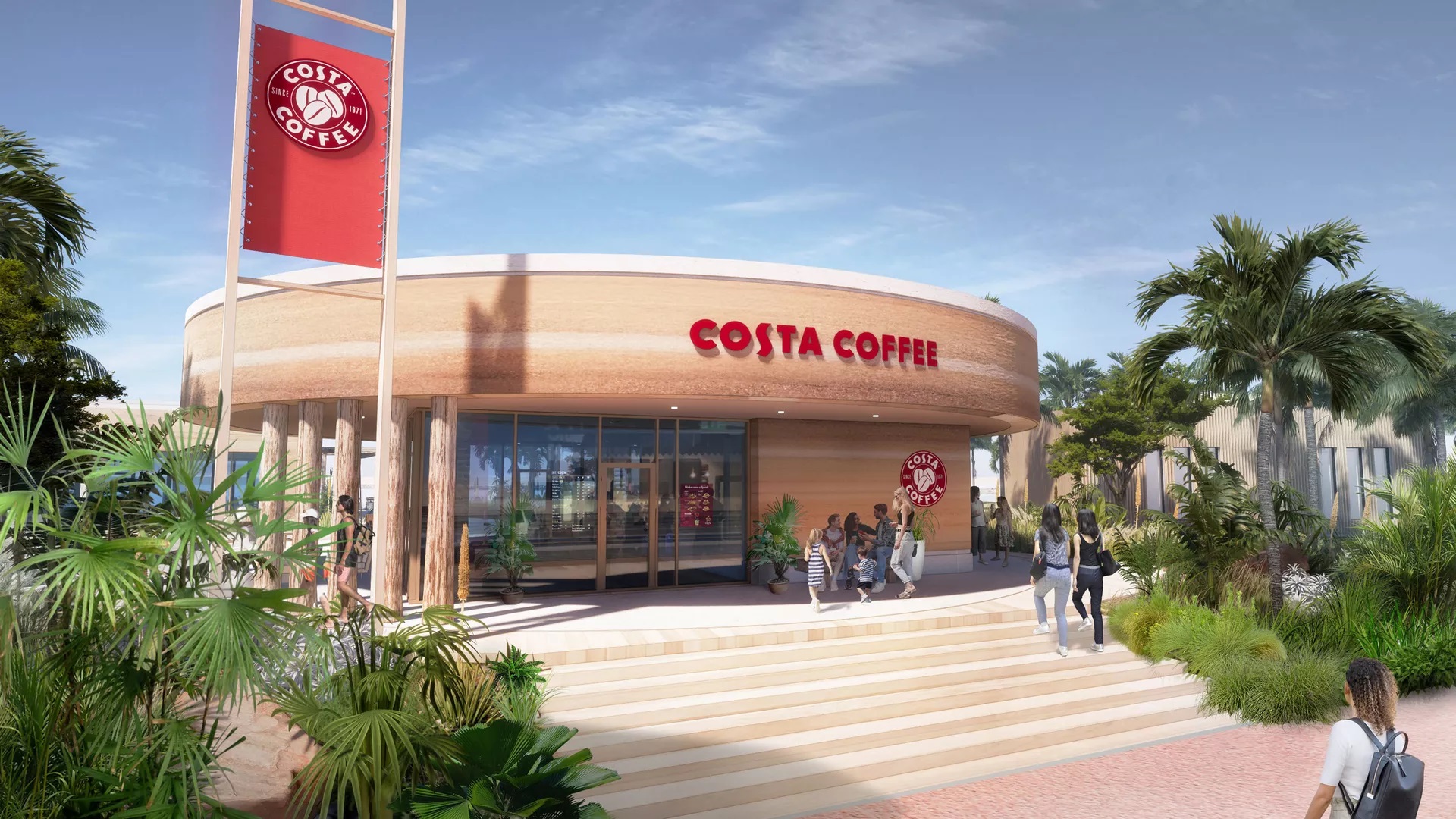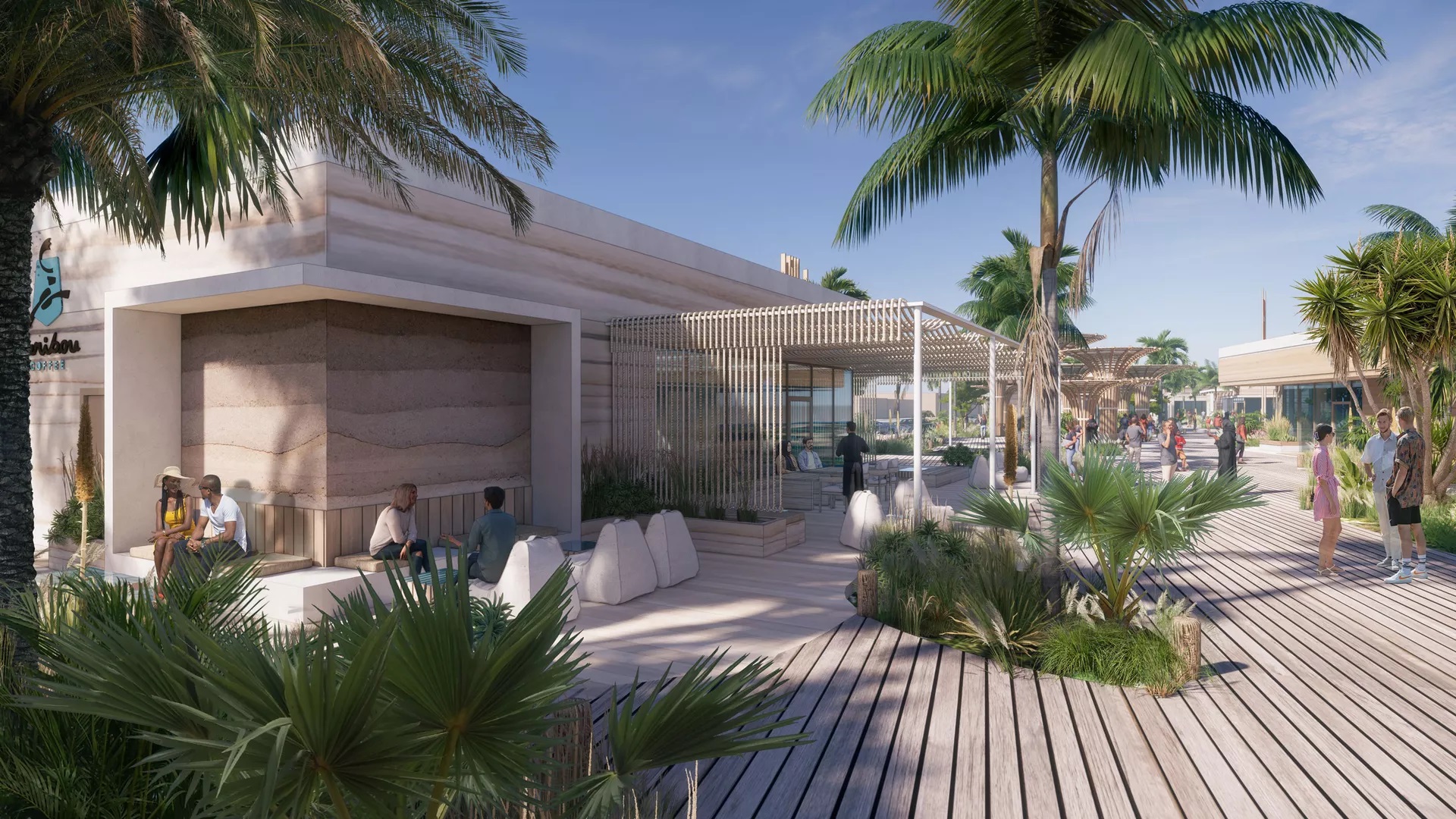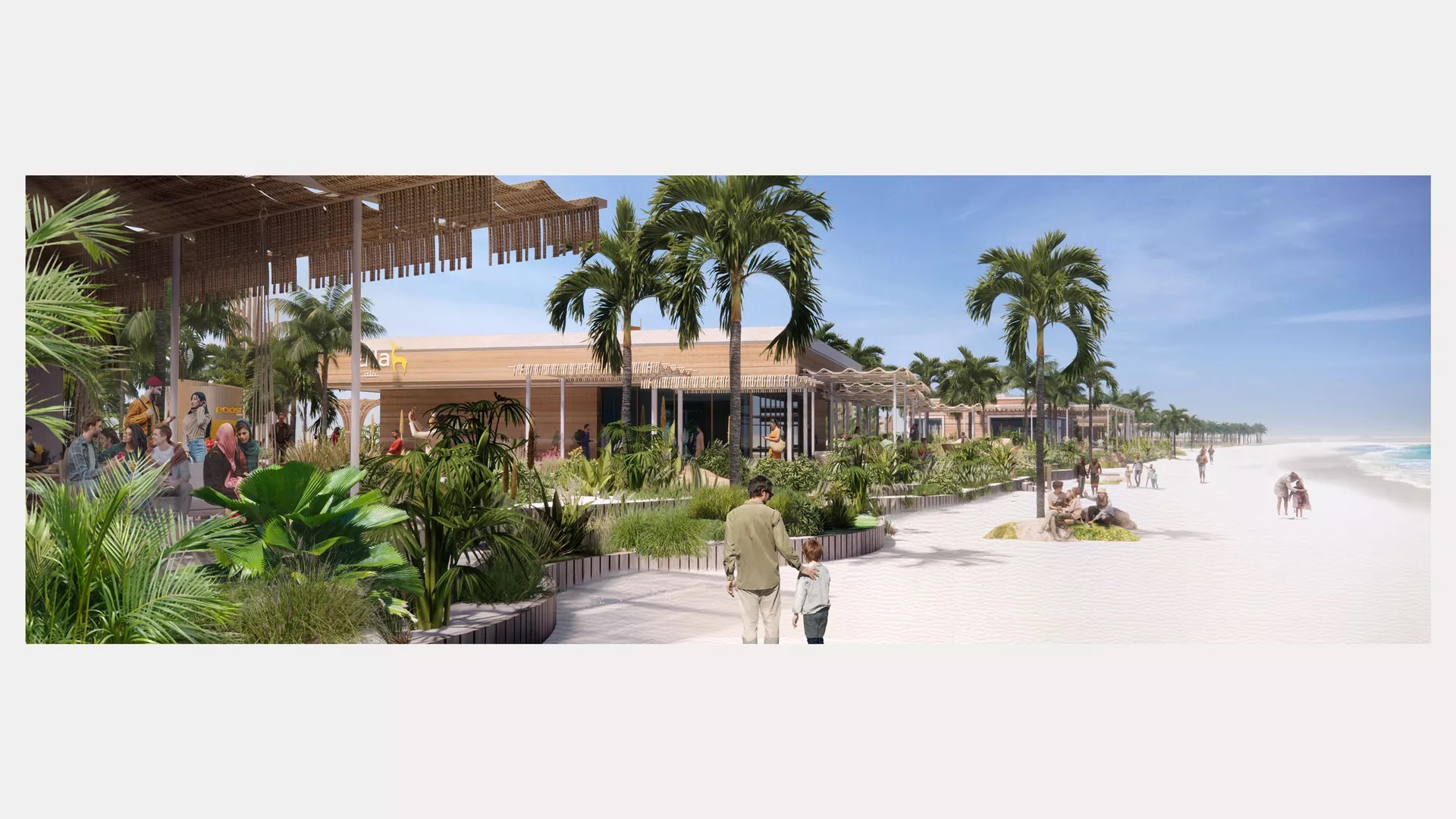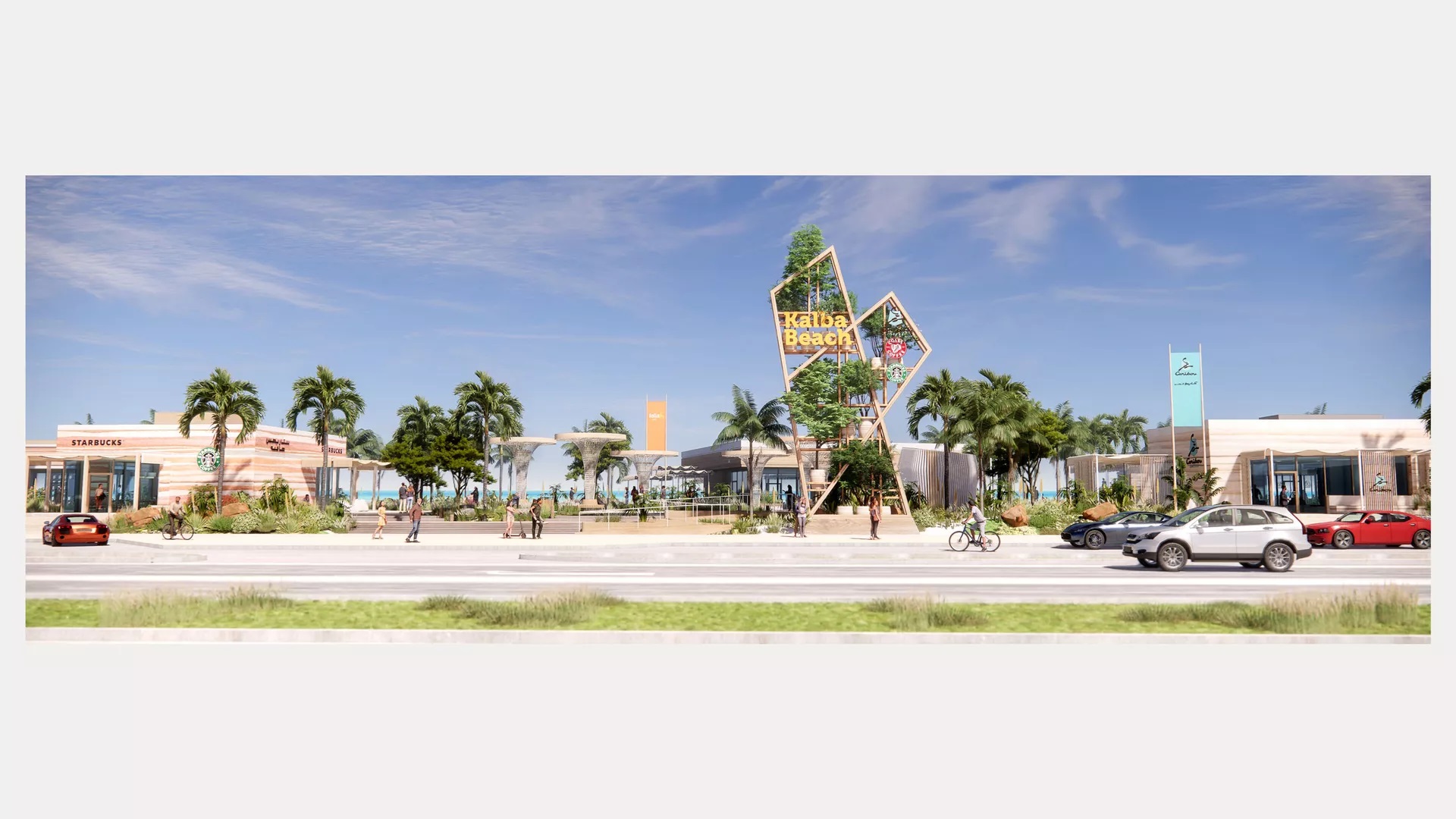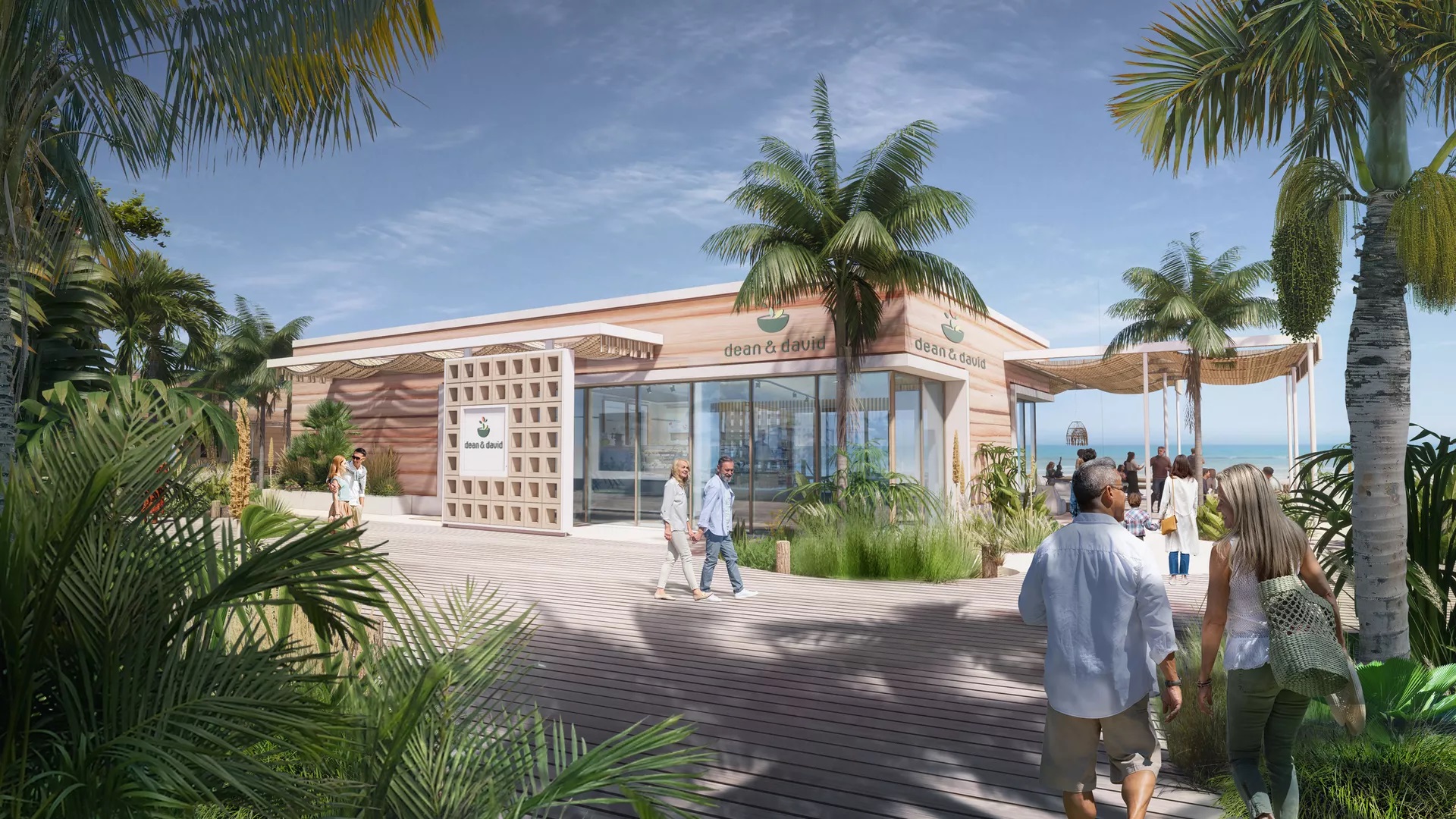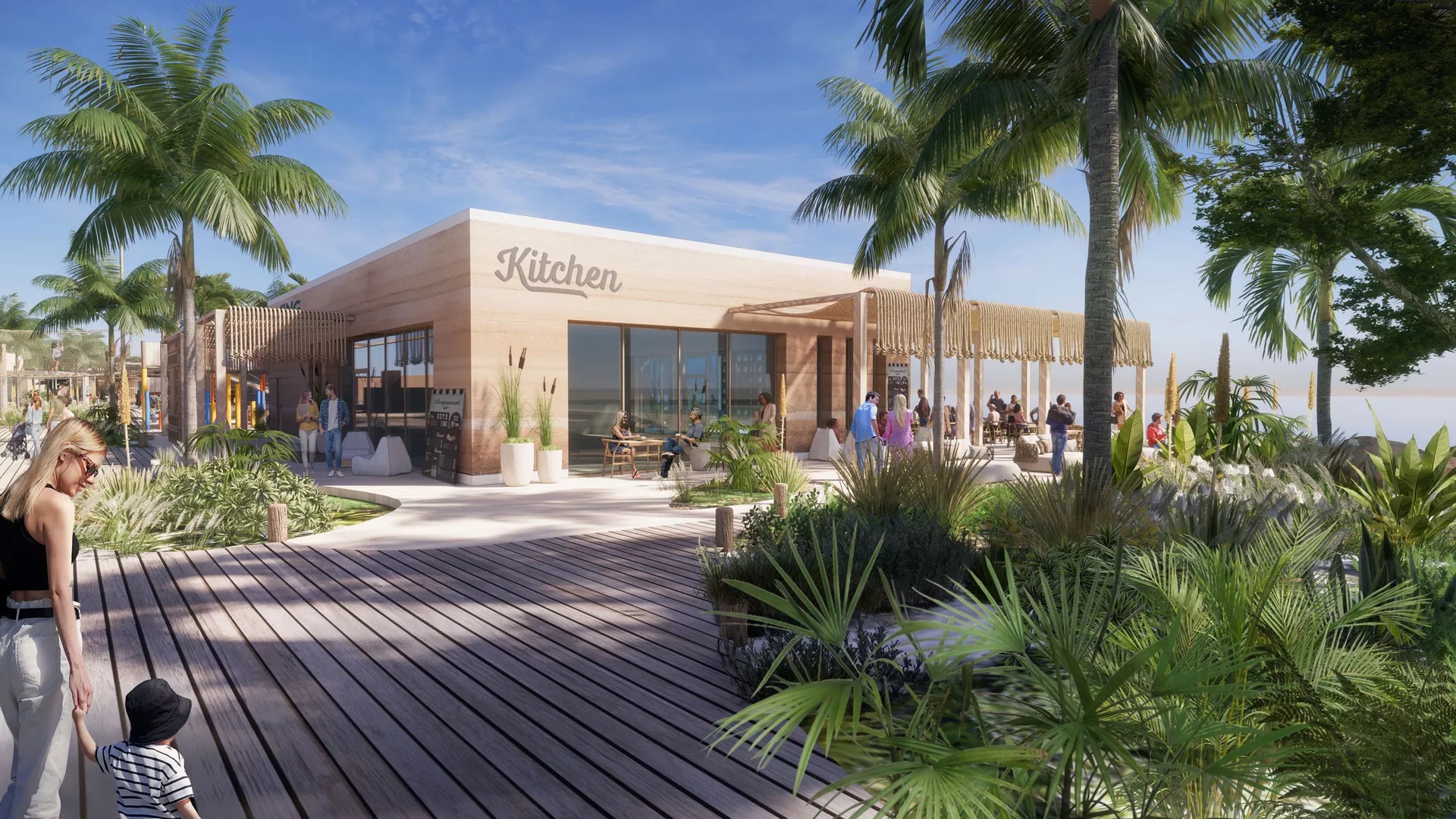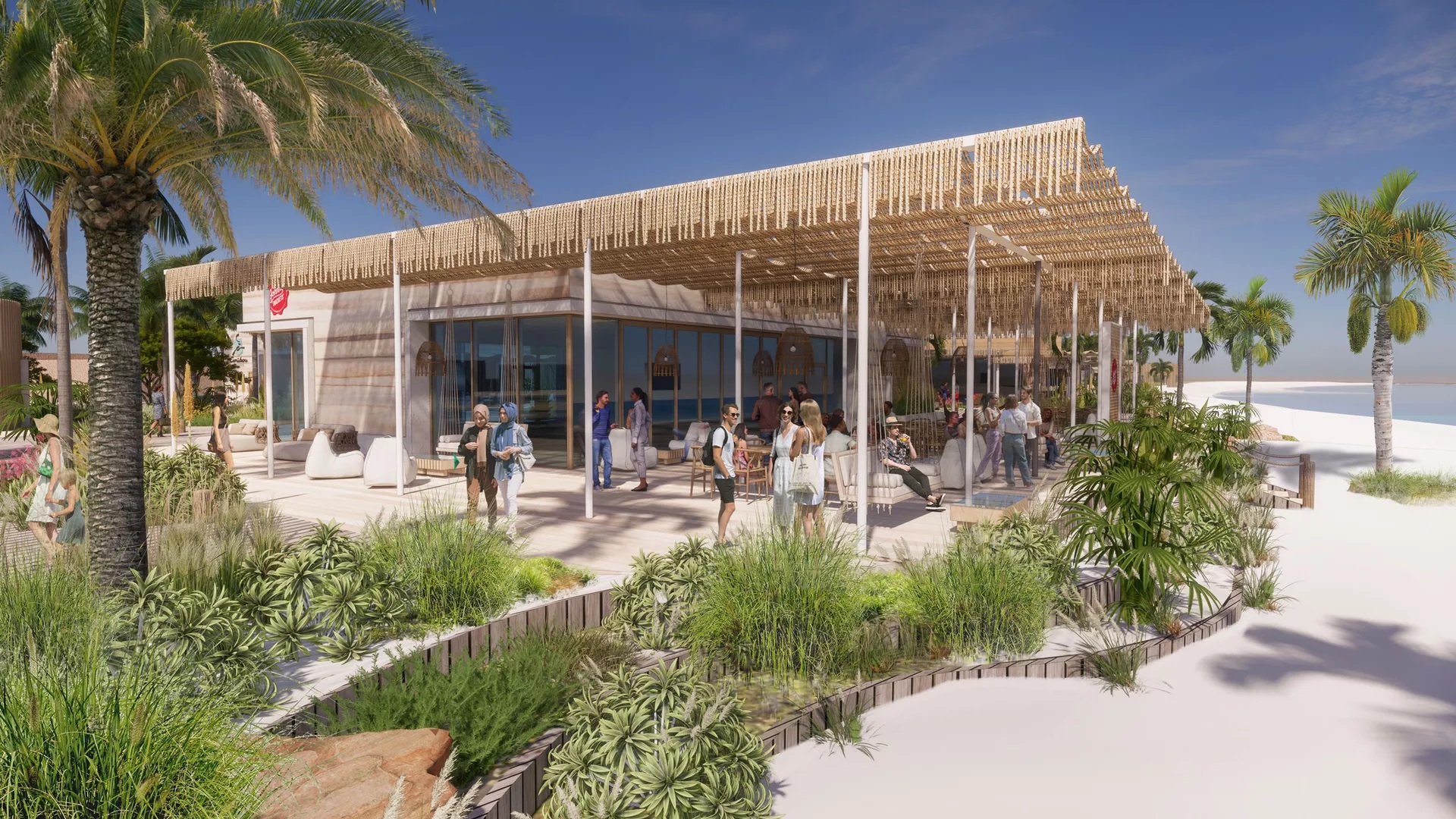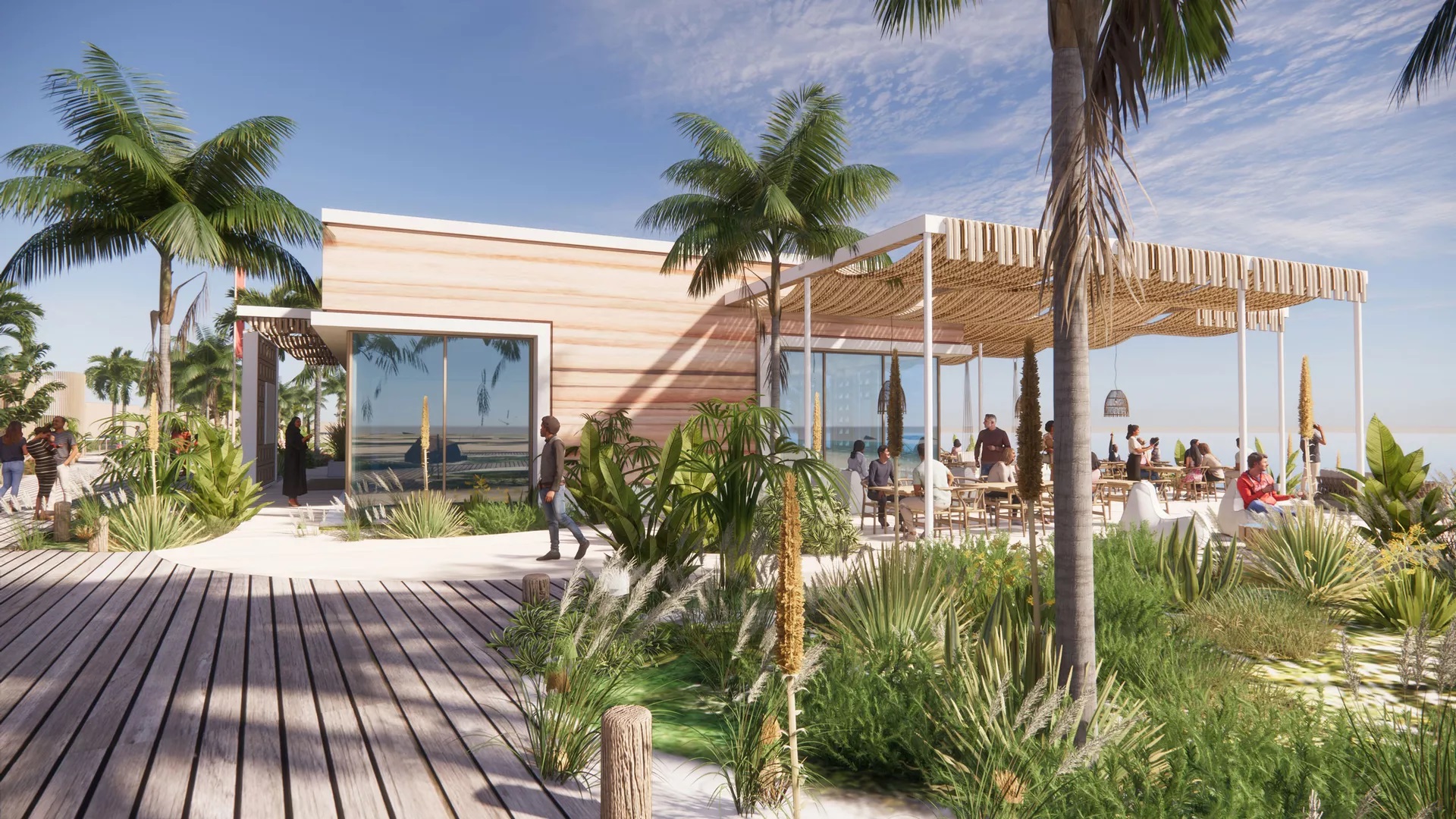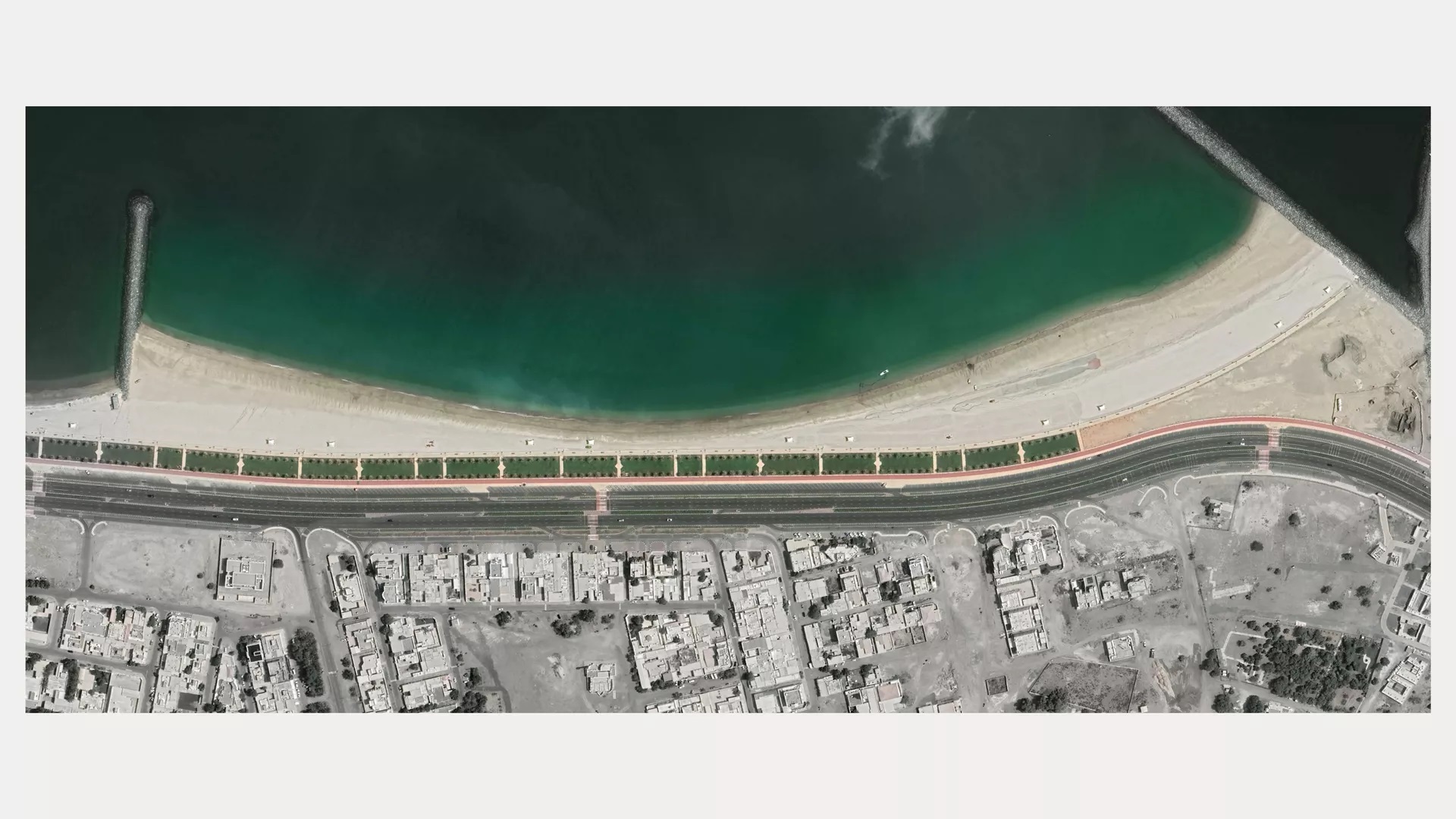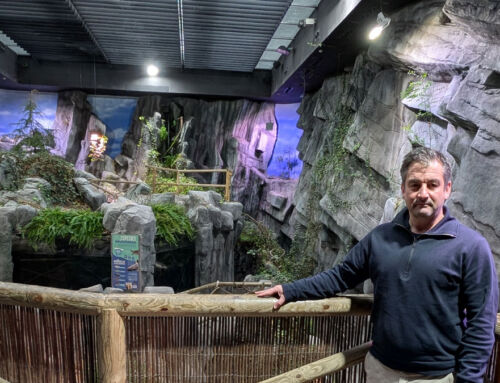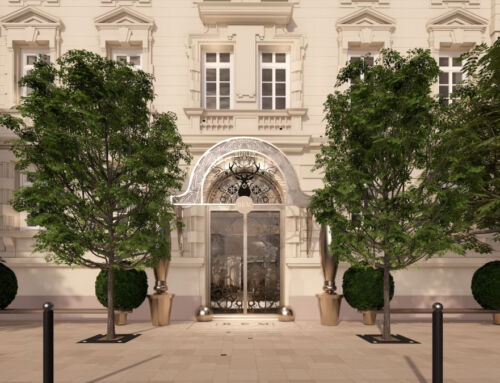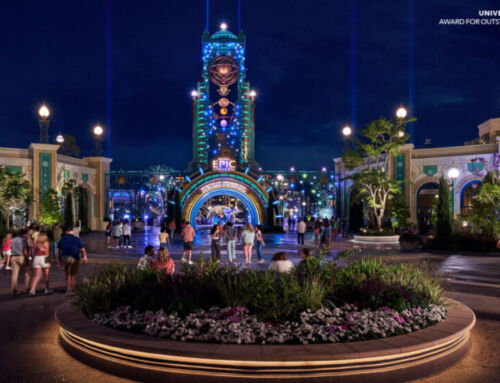German architecture firm 3Deluxe has designed a new leisure and recreation project commissioned by Shurooq, an independent United Arab Emirate government agency whose role is to promote investment and business in the tourism sector in the country. It is an urban development or, in the words of the architectural firm, an “urban oasis” that will stretch along one and a half kilometres of Kalba Beach on the eastern coastline of the Dubai metropolitan area on the Gulf of Oman.
The new “biophilic neighbourhood” will bring together restaurants, cafés, kiosks, as well as administration buildings, public services and a car park that “supports e-mobility”. Open façades, large open-air terraces with shaded canopies and green spaces are the general architectural design features of Kalba Beach. However, 3Deluxe has conceived the project in such a way as to minimise carbon emissions during construction and operation. All this without losing sight of the aesthetic aspect. Indeed, rammed earth, wood and indigenous vegetation will be the predominant features of the exterior appearance of this “Culinary District”. These materials, in addition to being locally sourced and therefore responsible for very low greenhouse gas emissions, also give the project many positive aspects.
The rammed earth, which is used for the exterior walls and facings, consists of compressed layers of local materials such as sand, gravel and clay, bound with a stabilising agent. It is a low embodied energy material, which produces very little waste and is reusable after demolition. It also offers a porous surface that improves acoustics and natural ventilation. At the same time, as a “thermal storage mass” with insulating capacity, it maintains stable indoor temperatures. Finally, as an absorbent and hydrophilic material, it regulates ambient humidity. Its “archaic expressiveness“, in stark contrast to modern surfaces and elements, is its main visual contribution. As for the wood, some of the façades, some or all of them, and the squares and walkways that connect some premises with others, will be made of it. These will be raised above the ground to avoid “soil sealing” as far as possible.
In addition to the above-mentioned positive aspects of the design, photovoltaic systems will be installed on all available roof space. Irrigation will be carried out using reclaimed grey water. Organic waste will be used to produce compost, which will be used to fertilise the land used for landscaped areas and vegetation.
Construction of Kalba Beach will begin in the summer of 2023 and is scheduled to open in mid-2024. The ultimate goal of project developer Shurooq is to create an environment for social interaction for expatriates, tourists and locals alike, and the promotion of local entrepreneurship with new business opportunities, especially for young people. In addition to establishments where well-known restaurant brands will set up shop, there will be open spaces for entrepreneurs to create new culinary concepts.
Source: 3Deluxe. Images. 3Deluxe.


